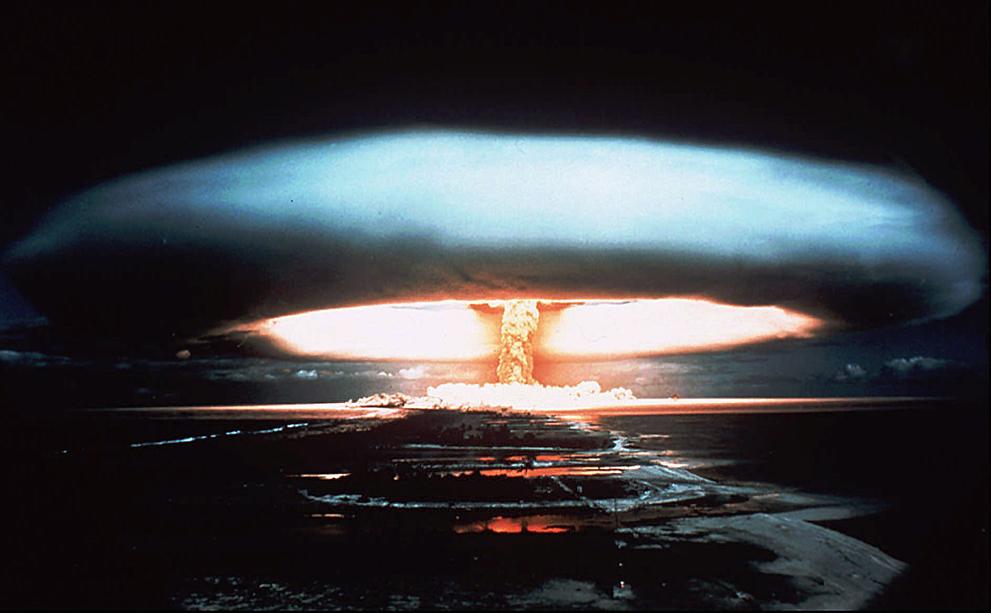In this next episode of the Adventures of Kim Jong Un, he has successfully tested a third nuclear bomb—but is it filled with plutonium or uranium? That’s what the evil U.S. government and its allies want to know, but Kim and his friends won’t give in until Washington realizes the error of its ways. Meanwhile, Kim’s only friend, China, tells him to cool it down. Will our hero give up his mission for equality? Or will he bravely face all odds with the help of his father’s ghost?
Thanks to Adolf Hitler, there may never be a national leader who waits before acting ever again. As NPR reported the day of the test, “In an emergency session, the U.N. Security Council unanimously said the test poses ‘a clear threat to international peace and security’ and pledged further action,” very likely including more sanctions that increase North Korea’s isolation. The test was a direct violation of previous U.N. sanctions upon the country in the first place. On the other hand, NPR said in the same article that “…the Obama administration’s options for a response are limited, and a U.S. military strike is highly unlikely.”
Getting the military involved would probably be too much; the test was a “‘first response’ to what it called U.S. threats,” according to NPR, and it would therefore create a worse situation than it tries to solve. But is more isolation going to help, either?
North Korea argues that the issue of nuclear weapons has a double standard; why can the U.S. have them and not North Korea? Well, the U.S. isn’t going to blow anyone up. But will North Korea, given the chance? Philosophically, we must give them the benefit of the doubt, for the same reason that Batman does not kill the Joker. And their desire to have an equal footing with other nations rings a bell in the minds of Americans, does it not?
How involved should America be, both in this situation and other global issues? “Global Trends 2030,” a publication given to each president at the beginning of each term by a group of global politics experts, imagines a future where the U.S. starts to decline in its position as “global policeman”: “Nevertheless, with the rapid rise of other countries, the ‘unipolar moment’ is over and Pax Americana—the era of American ascendancy in international politics that began in 1945—is fast winding down.” Diffusion of power has already begun, and the road to a functional global world is one without a supreme power.
But “Global Trends 2030” also says this: “During the next 15-20 years, the US will be grappling with the degree to which it can continue to play the role of systemic guardian and guarantor of the global order. A declining US unwillingness and/or slipping capacity to serve as a global security provider would be a key factor contributing to instability, particularly in Asia.” Perhaps, after all, America needs to be the world’s hero. As mentioned, Adolf Hitler taught us a painful lesson about leaving the world to its own problems.
Or perhaps global insecurity is a necessary evil to prepare the world to govern itself. All empires decay just like all living organisms, and while America is not technically an empire, it too is susceptible to downfall. In fact, it is inevitable. “Global Trends 2030” already foresees it. It would be better to deal with North Korea as a cooperative group than for America to hang onto its leadership position.
So will America save the world? Can planet earth ever find peace? Will arch-nemesis Kim blow everyone up? Will Hitler rise from beyond the grave to wreak havoc all over again? Tune in next time, folks!

